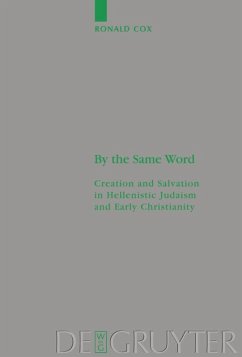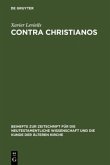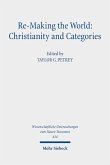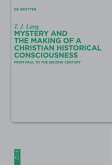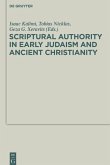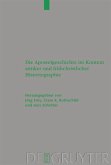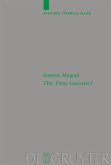Middle Platonism explained how a transcendent principle could relate to the material world by positing an intermediary, modeled after the Stoic active cause, that mediated the supreme principleâ??s influence to the world while preserving its transcendence. Having similar concerns as Middle Platonism, Hellenistic Jewish sapientialism, early Christianity, and Gnosticism appropriated this intermediary doctrine as a means for understanding their relationship to God and to the cosmos. However, these traditions vary in their adaptation of this teaching due to their distinctive understanding of creation and humanityâ??s place therein. The Jewish writings of Philo of Alexandria and Wisdom of Solomon espouse a holistic ontology, combining a Platonic appreciation for noetic reality with an ultimately positive view of creation and its place in human fulfillment. The early Christians texts of 1 Cor 8:6, Col 1:15-20, Heb 1:2-3, and the prologue of John provide an eschatological twist to this ontology when the intermediary figure finds final expression in Jesus Christ. Contrarily, Poimandres (CH 1) and the Apocryphon of John, both associated with the traditional rubric â??Gnosticismâ?, draw from Platonism to describe how creation is antithetical to human nature and its transcendent source.
"[...] an impressive and provokative study."
William Adler in: The Catholic Biblical Quarterly 72/2010
"This is a through study of an important issue across three bodies of literature, showing their common yet different appropriation of Middle Platonic philosophy."
Lutz Doering in: Journal for the Study of the NT 31.5/2009
"[...] an impressive and provokative study."William Adler in: The Catholic Biblical Quarterly 72/2010 "This is a through study of an important issue across three bodies of literature, showing their common yet different appropriation of Middle Platonic philosophy."Lutz Doering in: Journal for the Study of the NT 31.5/2009
William Adler in: The Catholic Biblical Quarterly 72/2010
"This is a through study of an important issue across three bodies of literature, showing their common yet different appropriation of Middle Platonic philosophy."
Lutz Doering in: Journal for the Study of the NT 31.5/2009
"[...] an impressive and provokative study."William Adler in: The Catholic Biblical Quarterly 72/2010 "This is a through study of an important issue across three bodies of literature, showing their common yet different appropriation of Middle Platonic philosophy."Lutz Doering in: Journal for the Study of the NT 31.5/2009

